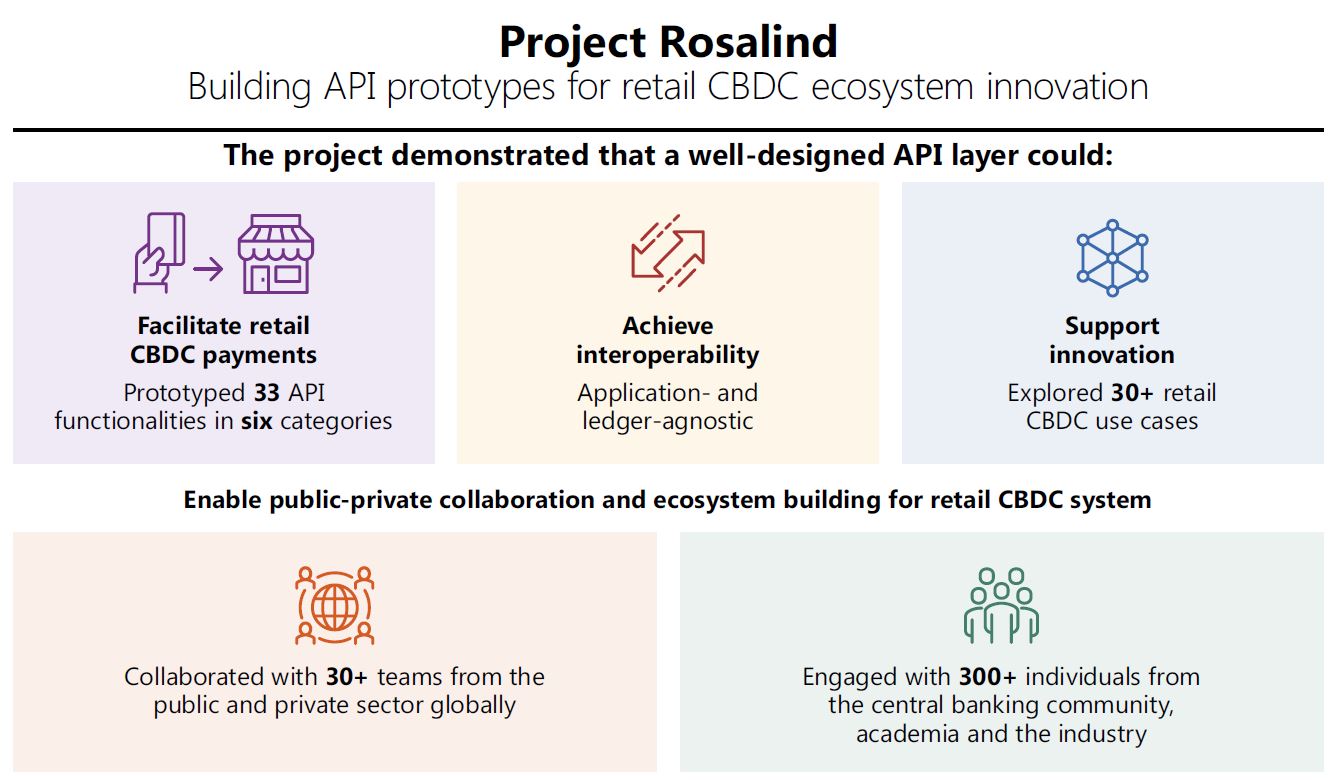The UK's journey towards implementing a Central Bank Digital Currency (CBDC) takes a significant step forward as Project Rosalind completes successful tests. This milestone brings the country closer to realizing its vision of a digital pound and explores the potential benefits and challenges associated with CBDC adoption.
Project Rosalind: Testing and Progress

Project Rosalind, the UK's initiative to develop a CBDC, achieves a major milestone with successful testing (1). This comprehensive exploration involves simulating real-world scenarios to assess the viability, security, and efficiency of a digital pound. The tests provide valuable insights into the potential benefits of CBDC adoption, including faster and more secure transactions, enhanced financial inclusion, and improved monetary policy implementation.

Implications for the Financial Landscape
The progress of Project Rosalind has significant implications for the future of the financial landscape in the UK. If implemented, a CBDC could revolutionize the way individuals and businesses transact, reducing reliance on traditional banking systems and introducing new possibilities for digital payments. It also opens avenues for innovation, such as programmable money and smart contracts, while addressing potential challenges related to cybersecurity, privacy, and monetary stability.
Enhancing Financial Inclusion and Accessibility
One of the key motivations behind the UK's CBDC project is to enhance financial inclusion and accessibility. By digitizing the national currency, the initiative aims to provide individuals with greater access to financial services, particularly those underserved by traditional banking systems. A digital pound can empower individuals with convenient and secure digital payment options, fostering economic participation and reducing reliance on cash transactions.
Regulatory Considerations and Collaboration
The development and implementation of a CBDC require careful consideration of regulatory frameworks and collaboration with various stakeholders. Project Rosalind emphasizes the importance of working closely with regulators, financial institutions, and technology providers to establish a robust and compliant digital currency ecosystem. Striking the right balance between innovation and regulation is crucial to ensure the integrity, stability, and trustworthiness of the CBDC.
Public Trust and Adoption
Building public trust and promoting widespread adoption are vital factors for the success of a CBDC. Transparency, security, and education are key in fostering confidence among individuals and businesses regarding the use of digital currencies. The UK government and relevant authorities must address concerns related to privacy, data protection, and the overall stability of the CBDC to encourage acceptance and adoption across society.
The successful testing of Project Rosalind brings the UK's CBDC initiative one step closer to reality. The exploration of a digital pound holds immense potential for transforming financial transactions, enhancing financial inclusion, and fostering innovation in the digital economy. As the UK continues its journey towards a CBDC, collaboration, regulatory considerations, and public trust will play crucial roles in shaping the future of digital currencies in the country.










